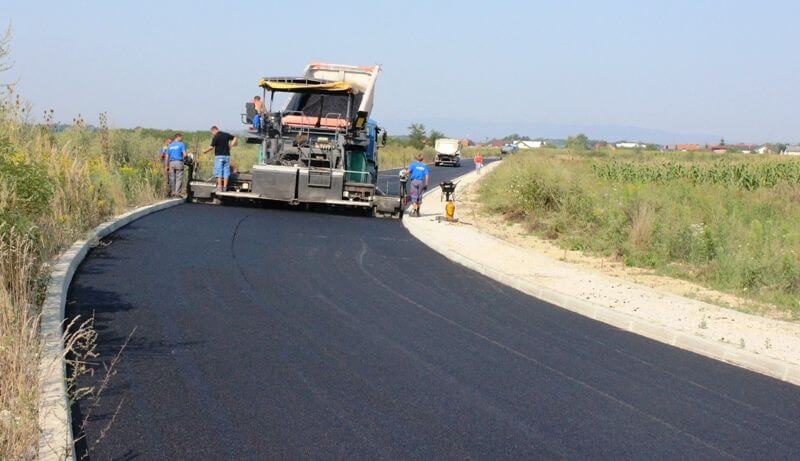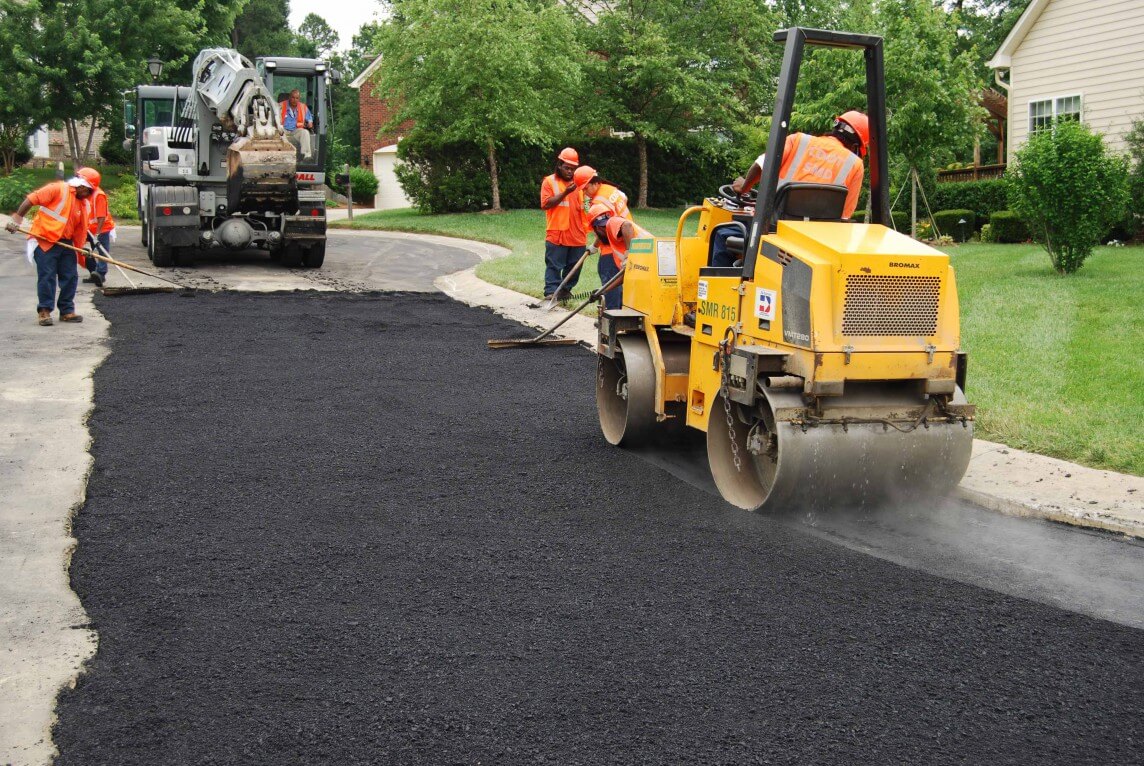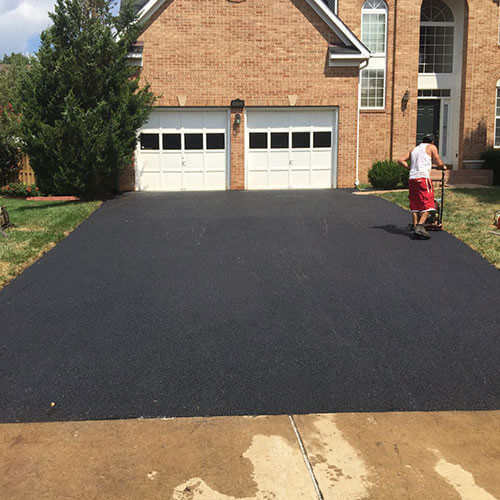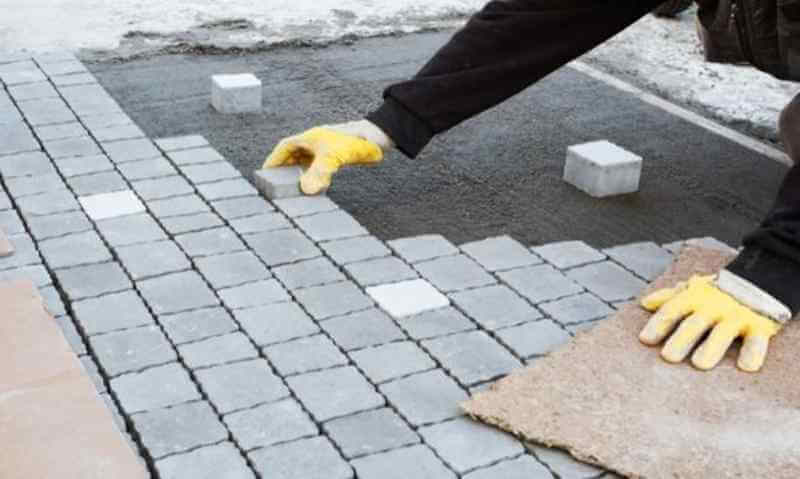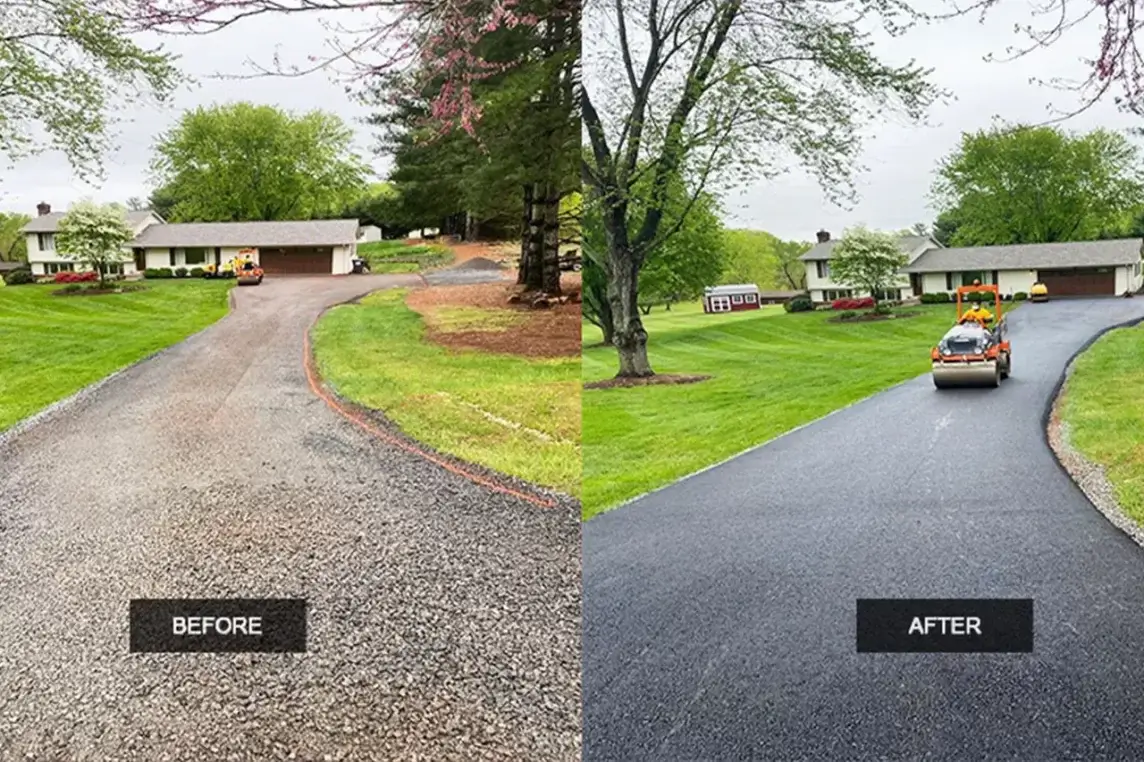At Standard Paving, we take pride in our knowledge of asphalt pavement in VA. Whether you need help with a driveway, roadway, or parking lot, we have a professional team for quality services. We’ve gathered the top questions we frequently receive. Our goal is to provide you with quick answers to make your paving decisions easier.
Let’s learn before you book the services:
When Should I Sealcoat My Asphalt Driveway?
Sealcoating your asphalt driveway, parking lot, or roadway is a smart move. We recommend doing this every 3 to 5 years. But what exactly is sealcoating? It’s a protective layer that you apply over your asphalt surface. This layer shields your pavement from various damaging elements, like the sun’s harsh rays, rain, snow, and leaks from vehicle oils. By taking this simple step, you can save money over time. Regular sealcoating helps your pavement last longer, meaning fewer repairs and replacements.
How Long Does an Asphalt Driveway Last?
If your asphalt driveway is installed correctly, it can last between 15 to 20 years. That’s quite a long time! However, to make sure it reaches its maximum lifespan, you need to perform regular maintenance. This maintenance doesn’t have to be complicated or expensive. Simple tasks like filling in cracks and sealcoating can keep your driveway in good shape. These steps will help prevent bigger problems down the line, saving you money and keeping your driveway looking nice.
What Causes Asphalt Deterioration and How Can I Prevent It?
Asphalt can face several threats that lead to its deterioration. The biggest enemy is surface water. When water seeps into cracks or under the asphalt, it can weaken the pavement, especially during freeze-thaw cycles in colder months. This is why proper drainage is so important when installing asphalt. Making sure that water flows away from your driveway or parking lot can prevent serious damage.
Another way to protect your asphalt is through sealcoating. This protective layer not only guards against water but also helps shield your asphalt from the sun and harmful fluids that leak from vehicles, like oil and gasoline. Knowing these threats can help you take preventive measures. Regular checks and maintenance can save you from costly repairs later.
How Do You Find the Best Asphalt Contractor?
Finding a good asphalt contractor is crucial for any paving project, whether it’s for your home, a business, or a municipal area. Start by doing some research. Ask potential contractors about their experience with projects similar to yours. It’s also important to check their reputation. Look for reviews from previous clients to see how satisfied they were with the work.
Make sure that the contractors you consider have the necessary licenses and insurance. This protects you in case something goes wrong during the project. Also, check if they have the right equipment for the job. A contractor with the right tools and experience will better understand your specific needs and deliver quality work.
What Is the Best Way to Repair Potholes?
Potholes can be a real headache. They are usually caused by water that freezes and thaws beneath the asphalt. In spring, when the temperatures rise, these potholes often appear and can be dangerous for cars, cyclists, and pedestrians. Repairing potholes is essential to keep your pavement safe.
To repair a pothole, follow these four simple steps:
- If possible, warm up the edges of the pothole. This helps the new material bond better with the existing asphalt.
- Use a custom aggregate mix to fill the pothole. Make sure to compact the mix well, so it’s level with the surrounding pavement.
- Let the repaired area cool. This allows it to harden properly, making it safe for use again.
- Taking care of potholes not only enhances the look of your asphalt but also increases safety for everyone.
How Do You Maintain the Fresh Look and Durability of a Parking Lot?
Maintaining a parking lot doesn’t have to be overwhelming. Regular upkeep is the key to keeping it looking great and avoiding expensive repairs. Here are some simple tasks you can do:
- Remove debris like leaves, dirt, and trash. This not only looks better but also helps prevent stains and damage.
- Just like with driveways, applying sealcoating every few years helps protect the surface. This layer shields against the sun, water, and vehicle fluids.
- Check for cracks and potholes regularly, especially after harsh weather. Fixing these issues promptly can save you money in the long run.
- Regular maintenance not only protects your investment but also creates a positive impression.
Final Wording
We hope this list of common questions about asphalt pavement has helped clarify some of your concerns. At Standard Pavers, we are dedicated to providing top-notch service and quality asphalt surfaces. Whether you need advice or assistance with your paving project, we are here to help. Don’t hesitate to reach out for more information or support!
